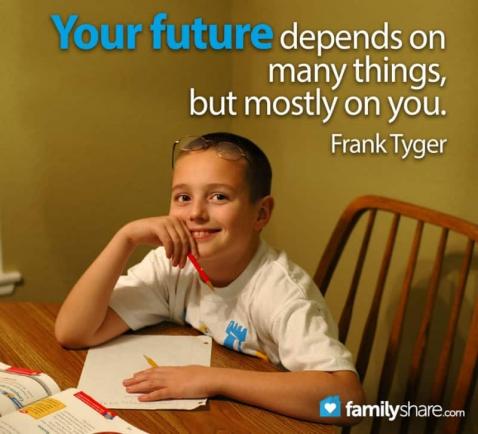
When our oldest son was born, my husband often said that boy ain't right. He definitely was different from his two older sisters. We attributed it to his being a boy. However, after his younger brother was born (we determined that his differences went beyond his gender), we came to realize that perhaps his differences were something more.
He didn't really interact with other children in his preschool or kindergarten class. Things like bright lights, lots of noise and new clothes seemed to trigger irrational responses. All of these and other issues compelled his kindergarten teacher to recommend that we test him for autism.
The results came back that he had Asperger's Syndrome or high functioning Autism. We then began our 12-year journey of learning and growing in the world of an autistic child. Along the way, we have learned how important it is to let people know about and understand this disorder so that they can understand, appreciate and enjoy our son as much as we did.
Speak up
As with any disability, it is important to become an advocate (you for your child at first and them for themselves as they grow older). For those who may work with or interact with a child with autism, it is important for them to know how to not only interact, but how to diffuse and even avoid a meltdown.
When we moved to Texas from California I will be forever grateful for the Special Education teacher at the school where we registered our son. She called that same day to find out what motivated him and how she could make the transition easier for all of us.
A few years later, we moved to Florida. Our experience at our son's school wasn't quite as positive because the administration and teachers had no previous experience with an autistic student. They felt he might be better served in a school that specialized in autistic children. However, because he had already been mainstreamed in the school system for the previous two years, we spoke up and insisted that he remain in a traditional classroom. It was a difficult year, but we all made it through. And hopefully that school was better prepared to meet the needs of autistic children.
Speak Out
The latest Center for Disease Control (CDC) numbers estimate that 1 in 88 children are affected by autism. Therefore, it is increasingly important that teachers, youth workers, families and the public have a basic understanding of autism and how it affects those who suffer from it. It is important to be open about the condition. Autism Speaks (www.autismspeaks.org) is a national organization that seeks to advocate and improve the lives of those with autism as well as be a resource for caregivers and families. Within their School Kit booklet they state "Increasing the school community's knowledge about and understanding of people with autism will benefit everyone."�
Often it is difficult to obtain the services your child needs through the school system. One parent, Jenny Holt, of Garner, NC has found that more traditional extracurricular activities such as karate, swimming or gymnastics can be as helpful if not more so than traditional physical therapy. Most programs are operated through the city and are good about accommodations.
Linda Hollman of Carlsbad, CA has found that the YMCA has excellent services for her daughter with autism, even providing her with an aide at their camps. Other helpful organizations she found were Surfers Healing, Camp I Can, and Sensory Friendly Films.
If your community does not offer accommodations such as these, speak out. Find other like-minded parents and let your city, town and recreation organization know of the need. Author and parent of three sons on the autism spectrum, Alyson Beytien said, "The majority of parents, if told this is what they can or can't do, they just accept it. They don't realize that they don't have to accept it." (www.desmoineregister.com)
Be informed
Lastly, it is important to have your facts straight. Be well informed. Do your research and keep up to date on treatments, symptoms, education, etc. For instance, when our son was diagnosed it was Asperger's Syndrome. Now they have removed that label from the psychiatrists' handbook, Diagnostic and Statistical
Manual and been put under the umbrella of "autism spectrum disorder"�.
Whether this will cause a change in services is a matter of debate, and therefore it is important that parents keep informed about what is going on. The Internet, of course, is a vast source of information - just be sure the source is reliable and accurate. You want to be able to have informed, intelligent conversations that will bring a better understanding of autism. A great online source is www.autismspeaks.org. They have links for advocacy as well as services that are available.
In order to be informed as to my son's rights for education I found The Complete IEP Guide: How to Advocate for Your Special Ed Child by Lawrence Siegel helpful. Be sure to use the most up-to-date edition as laws change often.
Another excellent source is Alyson Beytien's book, Autism Every Day. She speaks from experience as the mother of autistic children and as a consultant on the topic.
Although the last 12 years have not been easy as the parent of a child on the autistic spectrum, it has not been without its rewards. Our son has learned to overcome his disability and differences to be a successful student involved in theatre and music. Many who have met him are surprised to learn he even has autism. Much of this success is due to the hard work of professionals, teachers and family who have worked hard to speak up, speak out and speak well of autism bringing awareness to an increasingly common disorder.

